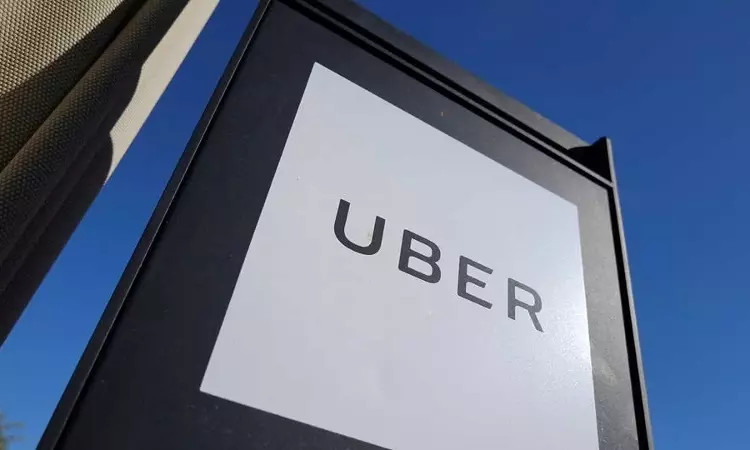Major aggregator Finsure is feeling optimistic about its ongoing case against Revenue NSW about payroll tax, following a successful challenge against the tax collection office in a similar case brought by Uber, according to its CEO.
While the Supreme Court of NSW has previously ruled that payroll tax should be paid on commissions and payments to brokers in certain instances, Finsure Group is one of two aggregators currently before the courts in a challenge against Revenue NSW regarding its position on payroll tax applications.
While Loan Market said earlier this month that it is still awaiting the judgment on final orders and costs for its case, Finsure CEO Simon Bednar said the recent Uber judgment had him feeling hopeful.
The Uber case – which covers the period 2015–20 and was brought by Revenue NSW as it seeks more than $81.5 million in tax payments – focused on the services provided by Uber drivers and how they are paid.
NSW Supreme Court Justice David Hammerschlag ruled earlier this month that Uber did not pay drivers a wage and dismissed the assessments and tax sought by Revenue NSW.
Specifically, the Supreme Court of NSW found that the payments Uber makes to its drivers are not “for, or in relation to, the performance of work”, which is one of the key tests for the extended payroll tax provisions to apply.
As such, it found those payments do not fall under the relevant contracts, according to the Payroll Tax Act 2007 of New South Wales.
Bednar said: “Similar to Uber, we are a service platform that distributes revenue from lender partners to the brokers in our network, all of whom operate as independent entities.
“While each case is to be judged on its own merit and not one case is reflective of our entire industry, we believe the Uber ruling will offer a clear example to help Revenue NSW better understand the aggregation business model, and not apply retrospective financial costs that will negatively impact ordinary Australians that rely on brokers to obtain a loan.
“By challenging the Revenue NSW assessment, we are wanting to draw a line.”
Bednar said that the group has “no doubt” that other state revenue offices have been “watching the outcome of the current cases with keen interest”.
He said a successful outcome for Finsure in the NSW challenge would “no doubt dissuade further action and help prevent unfair financial charges that could cripple our industry”.
“It’s all still to be determined but I can tell you one thing for certain – Finsure is up for the fight,” he said.
The Finsure comments come after Loan Market executive chairman Sam White noted the relevance of the Uber case.
The LMG executive chairman said earlier this month that the judge in that case had “agreed that drivers provide a service and there’s a contract in play but didn’t think the payments were in relation to the identified service performed”.
“The decision was based on the contractual arrangements entered into by Uber, drivers, and passengers,” he said.
“We’ll be going through the decision details to consider the merits of a possible Loan Market appeal.”
Once the final orders are issued, an appeals process will extend for 28 days.
You can find out more about the payroll tax case and its implications for the broking industry in this news story from July or watch the full webinar for an in-depth discussion of what it means for broking.
Uber’s Win: A Turning Point for the Broking Industry?
Finsure’s belief that the Uber ruling could be a positive for the broking industry stems from the fact that both businesses operate on similar models. Both connect individual contractors with clients, distributing revenue from their partners (in Finsure’s case, lenders) to their network of independent contractors (brokers).
Both Finsure and Loan Market have been embroiled in long-running court cases in regard to the application of payroll tax to certain brokers. The key issue at the heart of both cases is whether payments made to brokers through the aggregator platforms qualify as “for or in relation to the performance of work,” as defined under the Payroll Tax Act 2007 of NSW.
The recent Uber case provided some grounds for optimism for Finsure, as the court ruled that Uber did not pay its drivers a wage because these payments were not “for or in relation to the performance of work.” This ruling has raised hopes that Revenue NSW may reassess its stance on payroll tax applications for aggregators like Finsure.
Looking Ahead: What’s Next for Finsure?
While the Uber ruling is encouraging, it’s crucial to remember that each case is judged on its own merits. The outcome of Finsure’s case against Revenue NSW remains uncertain. However, the company’s CEO has shown strong determination to fight for what he believes is fair for the broking industry. Finsure’s position is that the application of payroll tax in their case would create unfair financial burdens on brokers, potentially harming the ability of ordinary Australians to access loans.
The outcome of Finsure’s case will have significant implications for the entire broking industry, particularly for the future of aggregator models. It remains to be seen whether Revenue NSW will accept the Uber ruling as a precedent, or if they will continue to pursue their claims against aggregators like Finsure.
The Implications of the Uber Ruling: A Broader Perspective
Beyond the broking industry, the Uber ruling raises questions about how the gig economy is regulated. In the wake of this ruling, the line between independent contractors and employees is becoming increasingly blurred, particularly within industries that rely on flexible workforce models.
The Uber case is a landmark decision with potentially far-reaching implications for the Australian tax system. It could signal a shift in how the government approaches the taxation of gig economy workers and platforms like Uber.
The Uber case will undoubtedly continue to generate discussion and debate within the broking industry, as well as across various sectors that operate on flexible work models. It remains to be seen how the courts will ultimately interpret the application of payroll tax in these cases, and what the long-term implications will be for businesses and workers alike.
The Future of Broking: A Time of Uncertainty
The broking industry is currently navigating a period of uncertainty, with the ongoing court cases regarding payroll tax and the wider implications of the Uber ruling. However, it’s clear that Finsure is committed to fighting for the future of the broking industry, and the company’s CEO has expressed confidence that the Uber ruling will create a more favorable environment for aggregators and brokers alike.
While the outcome of the Finsure case remains to be seen, the industry is watching closely. The decision will have far-reaching consequences for the way aggregators operate and potentially for the broader Australian financial services industry.

















